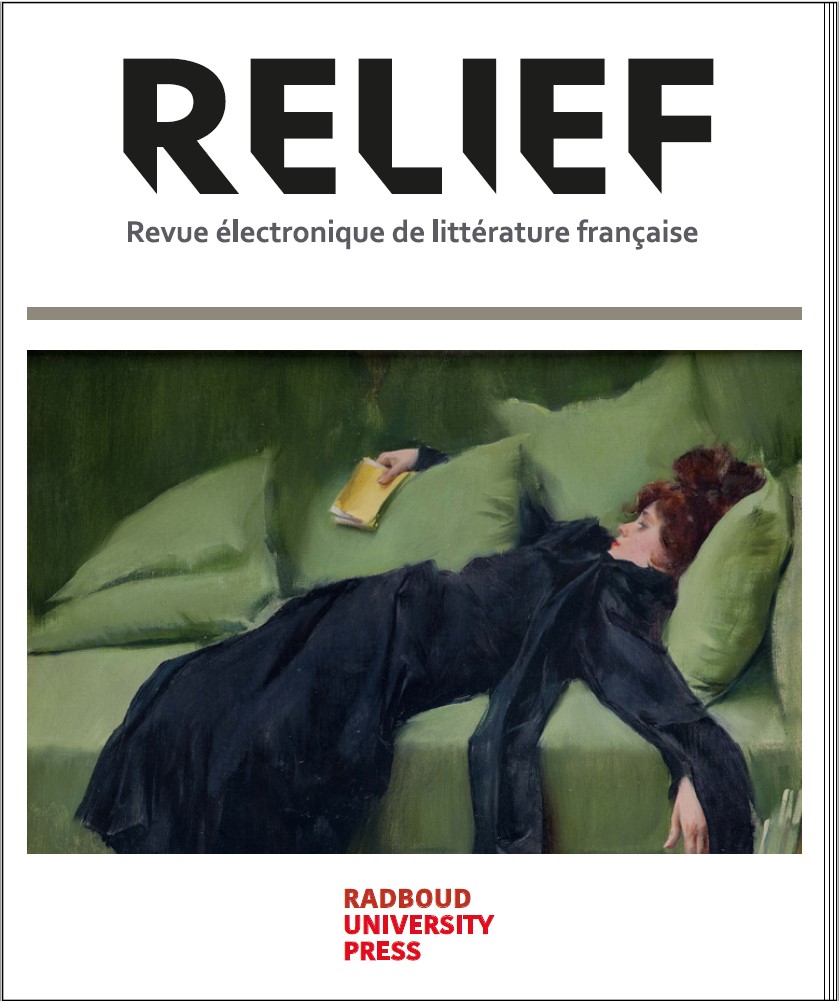Can the female reader be theorized? Referential reading and scholarly reading
DOI:
https://doi.org/10.51777/relief18428Keywords:
female reader, literary theory, gender studies, reception, epistemology of literary studiesAbstract
What does the emergence of a female reader, whose interpretation is deemed impertinent, signify in the writings of literature theorists? This article relies on three examples drawn from theoretical discourses on literature: they invoke a figure of the female reader to contemplate a way of reading that deviates from the expected interpretative stance of the 'ideal reader'. It argues that taking into account gendered social relations and an imaginary gendered aspect of reading sheds light on the difference between reading modes that are mobilizing various interpretative frameworks. Finally, it calls for theorizing literary reading from experiences that are inherently unresolvable within the neutrality and disinterestedness ostensibly associated with the mode of reading favoured by educational and literary institutions.

Downloads
Published
How to Cite
Issue
Section
License
Copyright (c) 2023 Marie-Jeanne Zenetti

This work is licensed under a Creative Commons Attribution 4.0 International License.
All articles published in RELIEF appear in Open Access under the Creative Commons Attribution 4.0 International License (CC-BY 4.0). Under this licence, authors retain ownership of the copyright of their article, but they allow its unrestricted use, provided it is properly cited.




